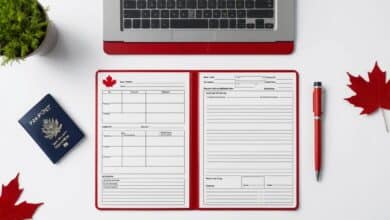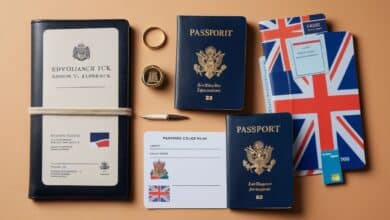Exploring Visa Sponsorship in Hamburg, Germany: Benefits, Insights, and a Strategic Application Path
Germany’s thriving economy attracts skilled professionals worldwide, and Hamburg stands out as a hub for global talent.
Known for its maritime heritage and innovation-driven industries, the city offers streamlined pathways for international workers to secure employment. Unlike systems requiring direct employer sponsorship, qualified candidates here can apply for work permits independently after signing a contract.
Many German companies simplify the process by handling paperwork or partnering with relocation agencies. This reduces delays and administrative hurdles for newcomers. Roles in tech, healthcare, and engineering are particularly accessible, reflecting Hamburg’s diverse economic landscape.
For professionals seeking long-term growth, the city’s business-friendly policies often lead to permanent residency options. Employers prioritize candidates with specialized skills, aligning with Germany’s demand for expertise in key sectors. Local support programs also help newcomers adapt to cultural and professional environments.
Understanding regional requirements ensures smoother transitions for those pursuing careers abroad. With competitive salaries and a high quality of life, Hamburg remains a top choice for ambitious individuals ready to advance their careers in Europe.
Understanding the Visa Sponsorship Process in Hamburg, Germany
Navigating work authorization pathways requires understanding Germany’s structured approach. The process balances employer needs with candidate qualifications while maintaining fair labor standards.
Overview of Visa and Work Permit Requirements
Skilled workers must meet two primary criteria. First, foreign academic degrees or vocational certifications need German equivalency validation. Second, applicants require binding job offers for roles demanding specialized training.
The Federal Employment Agency verifies salary parity and working conditions match local standards. This protects both domestic workers and international hires from unfair practices.
Comparing Traditional and Modern Sponsorship Models
Previous systems required employers to initiate permit applications. Current rules let qualified candidates apply independently after securing contracts. This shift empowers professionals while reducing corporate administrative burdens.
- Traditional model: Employer-led applications with strict quotas
- Modern approach: Candidate-driven process post-contract signing
- Hybrid option: Companies providing relocation support packages
Insights from German Relocation Practices
Many organizations streamline documentation through partnerships with relocation specialists. These agencies handle:
- Qualification recognition paperwork
- Appointment scheduling with authorities
- Housing and language support services
Residence permits typically align with contract durations, extending up to four years with renewal options. This stability helps professionals plan long-term career growth.
Visa Sponsorship in Hamburg: Opportunities and Benefits
Global professionals find compelling advantages when pursuing careers in this North German metropolis. The city’s economic diversity creates openings across high-growth industries, supported by robust corporate relocation frameworks.
Employment Benefits and Attractive Salaries
Roles in technology, healthcare, and logistics often provide compensation exceeding €58,400 annually – the EU Blue Card threshold. Many employers enhance offers with:
- Performance-based bonuses
- Comprehensive health coverage
- 30+ days of paid leave
Senior positions frequently include housing subsidies and family relocation budgets. These packages help professionals maintain financial stability while adapting to new environments.
Support from Companies and Relocation Agencies
Over 75% of mid-sized firms partner with relocation experts to streamline documentation. These specialists handle critical tasks like:
- Work contract validation
- Residence permit applications
- Cultural orientation programs
English-speaking roles in multinational companies simplify transitions for international hires. While some urgent positions require German fluency, most tech and engineering jobs prioritize technical skills over language proficiency.
Navigating the Application Process with Strategic Insights
Successfully securing work authorization demands a clear roadmap. Professionals must balance document preparation with procedural knowledge to avoid delays. This phase determines how quickly candidates can transition into their new roles.
Gathering Required Documentation and Contracts
A signed employment agreement forms the core of any application. Alongside this, candidates need travel health insurance and proof of temporary housing. Academic credentials must undergo formal recognition through platforms like Anabin.
The EU Blue Card offers accelerated processing for those earning above €58,400 annually. Applicants with recognized degrees benefit from reduced bureaucracy. Always verify salary thresholds match current standards for your occupation.
Role of the German Consulate and Appointment Procedures
Consulates manage final application submissions across most regions. Schedule appointments early through their online portals. Prepare to submit biometric data alongside physical copies of all documents.
Missing paperwork causes 43% of application rejections. Use checklist tools provided on consulate websites. Some locations offer priority services for urgent professional start dates.
Practical Tips for Securing Your Visa and Residence Permit
Begin document collection three months before planned relocation. Track processing timelines specific to your home country. Maintain open communication with employers about potential delays.
Applicants over 45 should negotiate salary terms meeting the €53,130 minimum. Alternatively, present pension plans approved by German authorities. Digital document organization prevents last-minute scrambling during interviews.
Conclusion
Building a career in Germany offers more than immediate employment—it opens doors to lasting residency opportunities. Professionals who maintain their work permit for three years may qualify for a settlement permit, a critical step toward permanent residency. This progression rewards those committed to contributing their skills in high-demand sectors.
Strategic preparation enhances success rates. Thorough document organization and understanding local requirements streamline transitions from temporary to long-term status. The EU Blue Card accelerates this path for eligible candidates, combining competitive salaries with faster residency options.
Germany’s evolving policies continue to attract global talent, making now an ideal moment to explore roles in key industries. With structured pathways and clear milestones, professionals can transform short-term opportunities into enduring career growth.
For more information, explore the official visa website mentioned in this article:
You will be redirected to another website
FAQ
What documents are needed for a German work permit application?
Applicants typically need a valid passport, employment contract, proof of qualifications, health insurance, and a clean criminal record. Specific roles may require additional certifications or language proficiency evidence.
How does the EU Blue Card differ from standard work permits?
The EU Blue Card targets highly skilled professionals with higher salary thresholds and offers faster pathways to permanent residency. Standard permits cater to broader skill levels and industries.
Do Hamburg employers assist with relocation logistics?
Many companies partner with relocation agencies to help with housing, language courses, and bureaucratic processes. Tech firms like Airbus or Siemens often provide comprehensive support packages.
What industries in Hamburg actively sponsor foreign talent?
Engineering, IT, renewable energy, and logistics sectors frequently sponsor professionals. Startups in Hamburg’s HafenCity district also recruit globally for tech and innovation roles.
How long does the visa approval process usually take?
Processing times vary between 1–3 months. Applicants can expedite the process by submitting error-free documents and securing consulate appointments early through platforms like ServiceVisa.
Can family members join visa holders in Germany?
Yes, spouses and dependent children can apply for family reunification visas. Proof of stable income and adequate housing is typically required for approval.
Are language skills mandatory for all work permits?
While English-speaking roles exist, basic German proficiency improves integration and is required for certain sectors like healthcare or public services.
Published on: 17 de July de 2025

Bakari Romano
Bakari Romano is a finance and investment expert with a strong background in administration. As a dedicated professional, Bakari is passionate about sharing his knowledge to empower individuals in managing their finances effectively. Driven by this mission, he founded FinancasPro.com, where he provides insightful and practical advice to help people make informed financial decisions. Through his work on the site, Bakari continues to make finance accessible and understandable, bridging the gap between expert knowledge and everyday financial needs.






